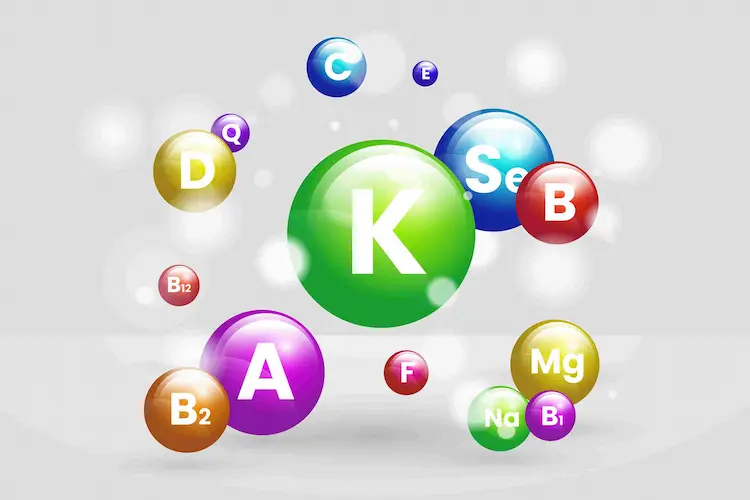Vitamins are the unsung heroes of our daily lives, silently working behind the scenes to keep our bodies functioning optimally. If you are a health-conscious individual, a nutrition enthusiast, or someone simply seeking wellness, understanding the vital importance of vitamins can profoundly impact your overall well-being. In this blog post, we will unravel the significance of vitamins, exploring their roles, benefits, and the consequences of deficiencies. By the end, you will be equipped with the knowledge to make informed decisions about your nutritional intake.

Understanding the Main Importance of Vitamins
Vitamins are essential organic compounds that our bodies need to function correctly. They play a myriad of roles, from boosting the immune system to supporting cellular function. Unlike other nutrients, vitamins cannot be synthesized in sufficient quantities by the body, so they must be obtained through diet or supplements. The primary importance of vitamins lies in their ability to facilitate and regulate various biochemical processes, which are critical for maintaining health and preventing diseases.
How Do Vitamins Work in the Body?
Vitamins act as coenzymes, meaning they assist enzymes in catalyzing biochemical reactions. For example, B vitamins help convert carbohydrates into glucose, which the body uses for energy. Vitamins also play a role in repairing cellular damage, supporting the immune system, and synthesizing DNA. The complex mechanisms of how vitamins work highlight their indispensable nature in our daily lives. Without adequate vitamins, these processes may slow down or malfunction, leading to potential health issues.
What Are 5 Important Vitamins?
While all vitamins are essential, some play particularly crucial roles in maintaining health. Here are five important vitamins you should be aware of:
Vitamin A
Vitamin A is vital for vision, immune function, and skin health. It helps maintain the integrity of the epithelial tissues that line various organs, acting as the body is first line of defense against infections. Deficiency in vitamin A can lead to vision problems, including night blindness.
Vitamin C
Known for its immune-boosting properties, vitamin C is also essential for collagen production, which helps maintain the skin, blood vessels, and bones. It acts as an antioxidant, protecting cells from damage caused by free radicals. A deficiency can result in scurvy, characterized by fatigue, gum disease, and skin issues.
Vitamin D
Often referred to as the sunshine vitamin, vitamin D is crucial for calcium absorption, promoting healthy bones and teeth. It also supports immune function and has anti-inflammatory properties. Deficiency in vitamin D can lead to bone disorders like rickets in children and osteomalacia in adults.
Vitamin E
This vitamin acts as a powerful antioxidant, protecting cells from oxidative damage. It also plays a role in immune function and skin health. Vitamin E deficiency is rare but can lead to nerve and muscle damage.
Vitamin K
Vitamin K is essential for blood clotting and bone health. It activates proteins that play a role in these processes. Without enough vitamin K, you may experience excessive bleeding and bruising.
Why Is Vitamin A Important for the Body?
Vitamin A is renowned for its role in maintaining healthy vision. It is a component of rhodopsin, a protein in the eyes responsible for absorbing light and supporting night vision. Additionally, vitamin A helps maintain healthy skin and mucous membranes, which are crucial for protecting against infections. This vitamin also plays a role in cell growth and differentiation, making it essential for overall development and immune function. A lack of vitamin A can lead to severe health issues, including impaired vision and increased susceptibility to infections.
Nutrient Absorption and the Role of Vitamins
Vitamins do not just work in isolation; they assist in the absorption and utilization of other nutrients. For instance, vitamin D enhances calcium absorption in the gut, while vitamin C improves iron absorption. This interdependency highlights the importance of a balanced diet rich in various vitamins to ensure optimal nutrient absorption. Without these vitamins, the body struggles to utilize essential minerals and nutrients, leading to deficiencies and associated health problems.
The Consequences of Vitamin Deficiency
Vitamin deficiencies can have severe and wide-ranging health implications. For example, a lack of vitamin C can lead to scurvy, characterized by gum bleeding, joint pain, and anemia. Vitamin D deficiency can cause rickets in children, leading to softened and weakened bones, while in adults, it can result in osteomalacia. Vitamin B12 deficiency can lead to pernicious anemia, causing fatigue, weakness, and neurological issues. These examples underscore the critical need for adequate vitamin intake to prevent various health complications.
The Benefits of Regular Vitamin Intake
Regular and adequate vitamin intake brings numerous health benefits. It boosts energy levels, supports the immune system, improves cognitive function, and enhances skin health. Vitamins also play a role in reducing the risk of chronic diseases such as heart disease, diabetes, and certain cancers. By maintaining a consistent intake of essential vitamins, you can enjoy a higher quality of life and better long-term health outcomes.
The Connection Between Vitamins and Mental Health and The Role of Vitamins in Skin Health
Emerging research suggests a strong link between vitamin intake and mental health. For instance, vitamin D is known to influence mood and has been linked to reduced symptoms of depression. B vitamins, particularly B6, B9 (folate), and B12, are crucial for brain health and function, affecting mood regulation and cognitive performance. Ensuring adequate vitamin intake can thus play a role in supporting mental well-being and cognitive health.Your skin reflects your overall health, and vitamins play a pivotal role in maintaining its vitality. Vitamin E acts as an antioxidant, protecting skin cells from damage. Vitamin C promotes collagen production, which keeps the skin firm and youthful. Vitamin A, in the form of retinoids, helps in skin cell regeneration and reduces the appearance of fine lines and wrinkles. By incorporating these vitamins into your diet, you can achieve healthier, more radiant skin.















Comments
Leave a comment